How often do you look at postage stamps when you receive or send letters? But for collectors, these scraps of paper are real treasures, for which it is not a pity to give tens or even hundreds of thousands of dollars. And the most valuable stamps in the world go under the hammer for millions of "evergreen American presidents."
We present to you top 10 rarest and most expensive stamps in history.
10. Tiflis Unique - $763.6 thousand.
 Our list opens with the most expensive stamp of Russia, which is also the first postage stamp issued in our country. This happened in 1857, on the territory of modern Georgia. As the name suggests, the stamp was intended for the city post office of Tiflis. It had a face value of 6 kopecks and had no teeth.
Our list opens with the most expensive stamp of Russia, which is also the first postage stamp issued in our country. This happened in 1857, on the territory of modern Georgia. As the name suggests, the stamp was intended for the city post office of Tiflis. It had a face value of 6 kopecks and had no teeth.
Only 5 copies of the “Tiflis Unique” have survived to this day.
9. Inverted Jenny - $977.5K
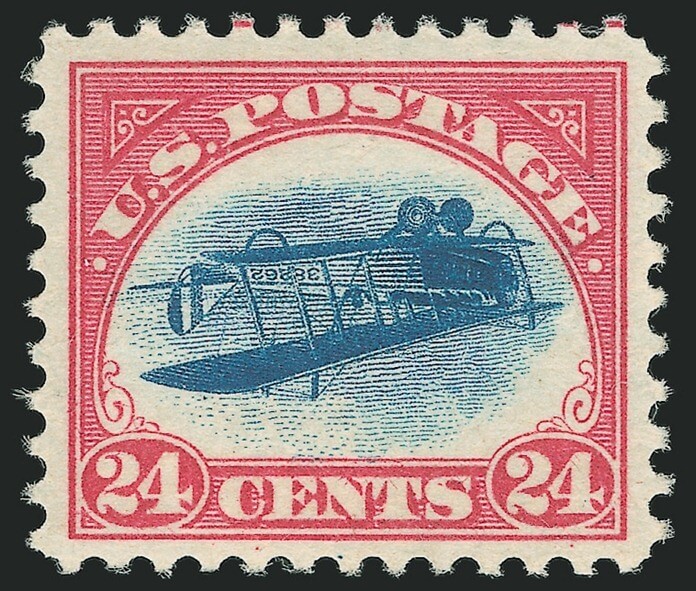 What you see here is one of the rarest stamp errors in the history of U.S. stamps. The aircraft depicted on the stamp is a JN-4HM built by Curtiss in the middle of World War I.
What you see here is one of the rarest stamp errors in the history of U.S. stamps. The aircraft depicted on the stamp is a JN-4HM built by Curtiss in the middle of World War I.
A printing error meant that the blue vignette - the plane and the air around it - was printed upside down, but the red frame framing the scene was printed correctly.
"Jennys" were military biplanes modified to deliver U.S. government mail. They crashed often. In fact, the very first U.S. Post Office flight, on May 15, 1918, ended in disaster. The pilot was flying in the wrong direction and crashed in a farmer's field, ironically near the property of Otto Praeger, the official in charge of the airmail service.
8. Pink Mauritius - $1 million.
 Along with its "brother" - the Blue Mauritius - this very expensive rarity is one of the first stamps of the island state of Mauritius. Instead of the words "Post office" on the stamp, the words "Post Paid" are displayed. Moreover, they were officially approved, and are not a mistake made by the engraver.
Along with its "brother" - the Blue Mauritius - this very expensive rarity is one of the first stamps of the island state of Mauritius. Instead of the words "Post office" on the stamp, the words "Post Paid" are displayed. Moreover, they were officially approved, and are not a mistake made by the engraver.
7. The whole country is red - $1.1 million.
 Issued in 1968, this valuable stamp depicts smiling Chinese citizens holding Mao Zedong's Red Book, a symbol of Chinese communism.
Issued in 1968, this valuable stamp depicts smiling Chinese citizens holding Mao Zedong's Red Book, a symbol of Chinese communism.
Although the overall design of this philatelic gem is red, the Taiwan region (right) is white. Because of this design error, the entire batch of stamps was hastily recalled. It is unknown how many of these stamps survived, but they are certainly extremely rare.
It is curious that there were no reprisals against the artist Wang Weisheng, who made the mistake.
6. Blue Mauritius - $1.1 million.
 In September 1847, these 2 pence colored stamps were used to mail envelopes containing tickets to a ball given by Elizabeth Gomme, wife of the governor of the tropical island of Mauritius. No one at this privileged party guessed that the cheap stamps would one day be worth more than a million dollars.
In September 1847, these 2 pence colored stamps were used to mail envelopes containing tickets to a ball given by Elizabeth Gomme, wife of the governor of the tropical island of Mauritius. No one at this privileged party guessed that the cheap stamps would one day be worth more than a million dollars.
When two Mauritius Blues appeared on the fledgling French stamp collecting market in 1865, they were an instant hit. These unique examples were the first British Empire “citizenship” stamps to be issued outside the metropolis. In addition, there was an error in their initial issue. This combo is a real find for collectors, as such stamps are much rarer and are worth much more than “flawless” stamps.
5. Baden color error - $2 million.
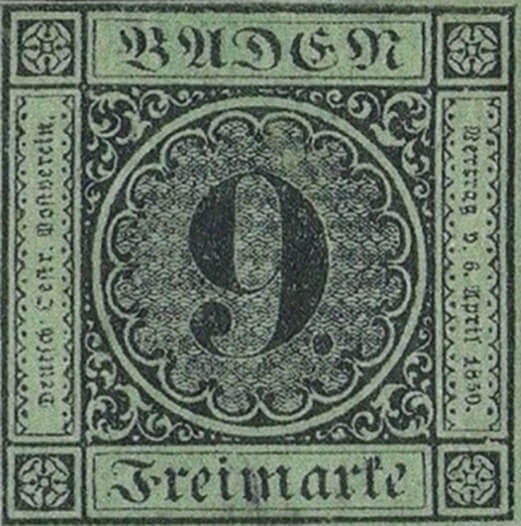 The most expensive German postage stamp. It is known to collectors all over the world because only 4 copies have survived. These 9-kreuzer stamps were planned to be printed in pink, but several sheets turned out green. And this color was planned to be used for the 6-kreuzer stamps.
The most expensive German postage stamp. It is known to collectors all over the world because only 4 copies have survived. These 9-kreuzer stamps were planned to be printed in pink, but several sheets turned out green. And this color was planned to be used for the 6-kreuzer stamps.
4. Swedish uniqueness - $2.3 million.
 It is believed to be the only surviving misprint of the 1855 Three Skilling Banco stamp, which was supposed to be blue-green but turned out yellow. Because of this, one of the rarest postage stamps is called the "Yellow Three Skilling".
It is believed to be the only surviving misprint of the 1855 Three Skilling Banco stamp, which was supposed to be blue-green but turned out yellow. Because of this, one of the rarest postage stamps is called the "Yellow Three Skilling".
The last time the curiosity was shown to the public was in 2010, at the London Stamp Festival. That same year, it was sold at auction in Switzerland. The buyers were a group of people who wished to remain anonymous.
3. Sicilian Color Error - $2.7 million
 This unattainable dream of philatelists is rare for several reasons.
This unattainable dream of philatelists is rare for several reasons.
- First of all, because of a color error. It was supposed to be issued in orange. Instead, in 1859, the stamp was issued in blue.
- Secondly, today only two such brands are known.
- And most importantly, despite the fact that the stamp is very old, it is in excellent condition.
On June 10, 2011, the stamp was sold at auction in Basel, Switzerland.
2. Holy Grail - $2.9 million
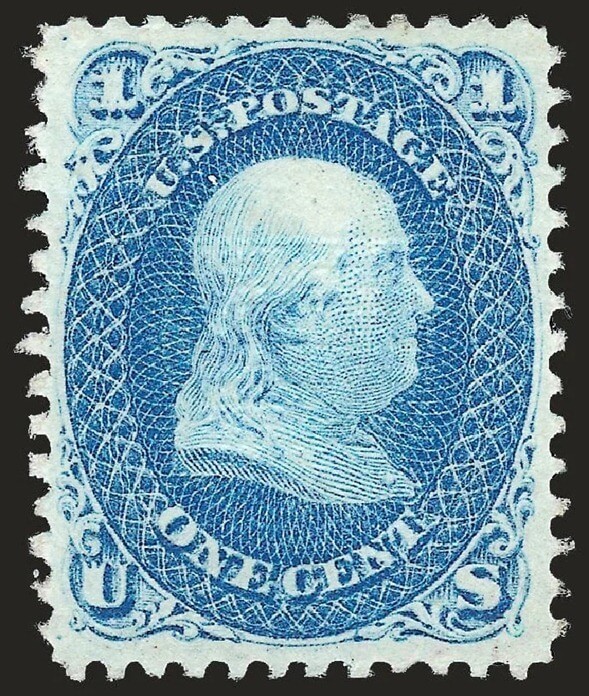 One of the rarest US stamps, printed in 1868. It features the profile of Benjamin Franklin, who, although not an American president, was at one time the postmaster of all the North American colonies.
One of the rarest US stamps, printed in 1868. It features the profile of Benjamin Franklin, who, although not an American president, was at one time the postmaster of all the North American colonies.
This particular example is distinguished by a special type of waffle (the so-called Z-Grill design). This type of pressing was not used for very long, a couple of weeks at most. The short production time is what makes the brand so rare.
The Z-Grill is unique in two ways.
- Firstly, it was the first type of stamp pressing to be put into production in 1868 (despite the fact that its name used the last letter of the English alphabet).
- Secondly, with this type of waffling the ribs are arranged horizontally, whereas with other types of pressing they are arranged vertically.
1. British Guiana - $9.5 million.
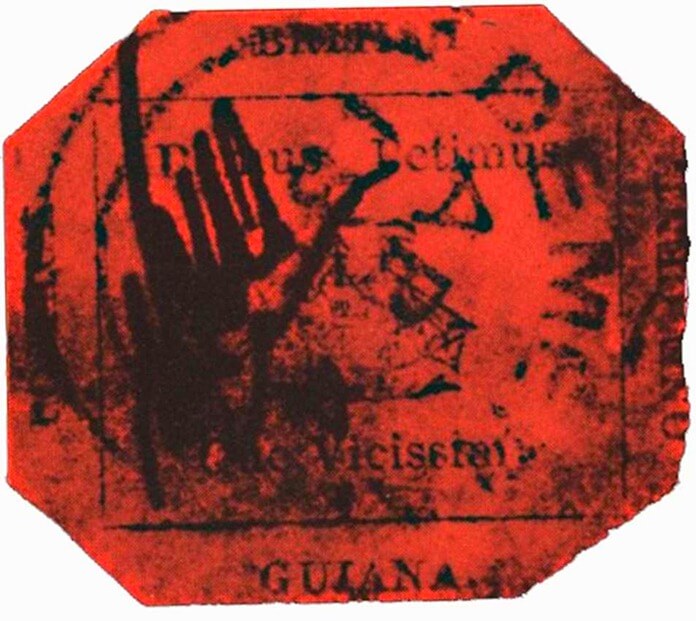 This 1 cent stamp was auctioned at Sotheby's in 2014 and bought by Stuart Weitzman, who bid on the phone. The sale price was below the auction house's initial estimate of $10-20 million, but it is still a world record. And the British Guiana (also called the "British Pink Guiana") remains the rarest and most expensive stamp in the world to this day. Only one copy exists.
This 1 cent stamp was auctioned at Sotheby's in 2014 and bought by Stuart Weitzman, who bid on the phone. The sale price was below the auction house's initial estimate of $10-20 million, but it is still a world record. And the British Guiana (also called the "British Pink Guiana") remains the rarest and most expensive stamp in the world to this day. Only one copy exists.
The History of British Guiana
A series of three stamps was issued on behalf of British Guiana Postmaster E. T. E. Dalton as a contingency reserve until stamps arrived from Great Britain. Two varieties were created: 4-cent and 1-cent.
British Guiana is the only surviving one-cent stamp from the entire 1856 issue.
How British Guiana Changed Hands
In 1873, the stamp was discovered by a 12-year-old boy among his uncle's letters. The boy sold the stamp to collector N. R. MacKinnon, valuing it at just a few shillings.
MacKinnon's collection then came into the hands of a Liverpool dealer, Thomas Ridpath, who showed the stamp to experts and learned that he had a fortune in his hands. Ridpath sold British Guiana at a profit to the great philatelist Baron Philipp von Ferrari.
As time went on, the stamp grew in value until the infamous John Eleuther DuPont bought it for $935,000 in 1980. DuPont was convicted of murdering Olympian David Schultz in 1997 and died in prison in 2010. DuPont's will specified that 80 percent of the proceeds from the stamp go to former wrestler and Olympic medalist Valentin Yordanov and his family. The rest goes to the Eurasia Pacific Wildlife Conservation Fund.

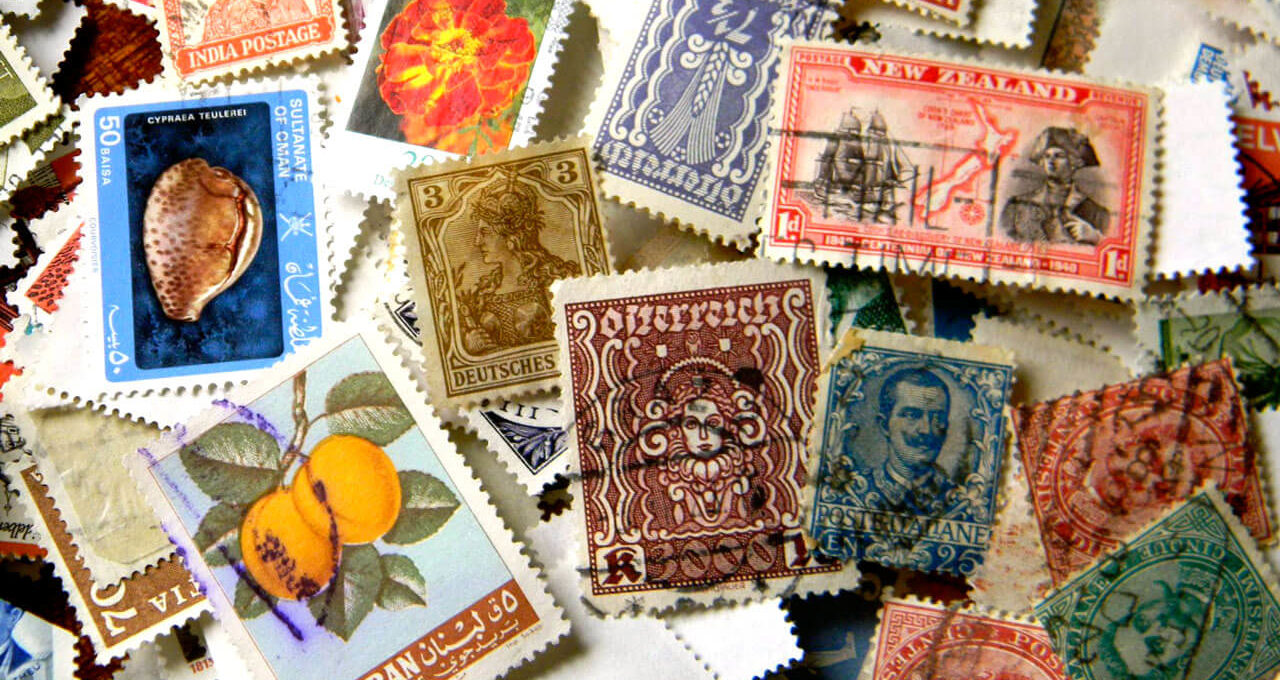



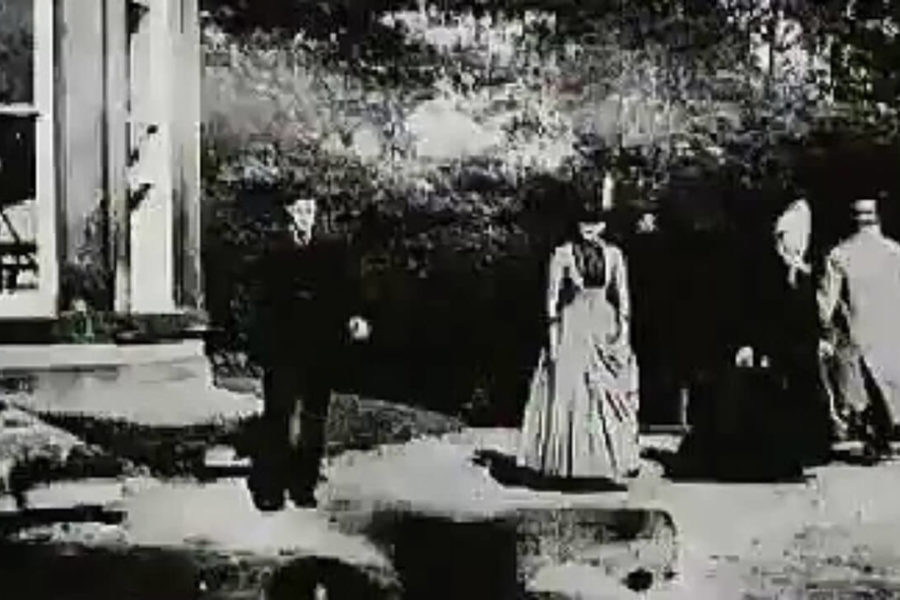








Оставить Комментарий